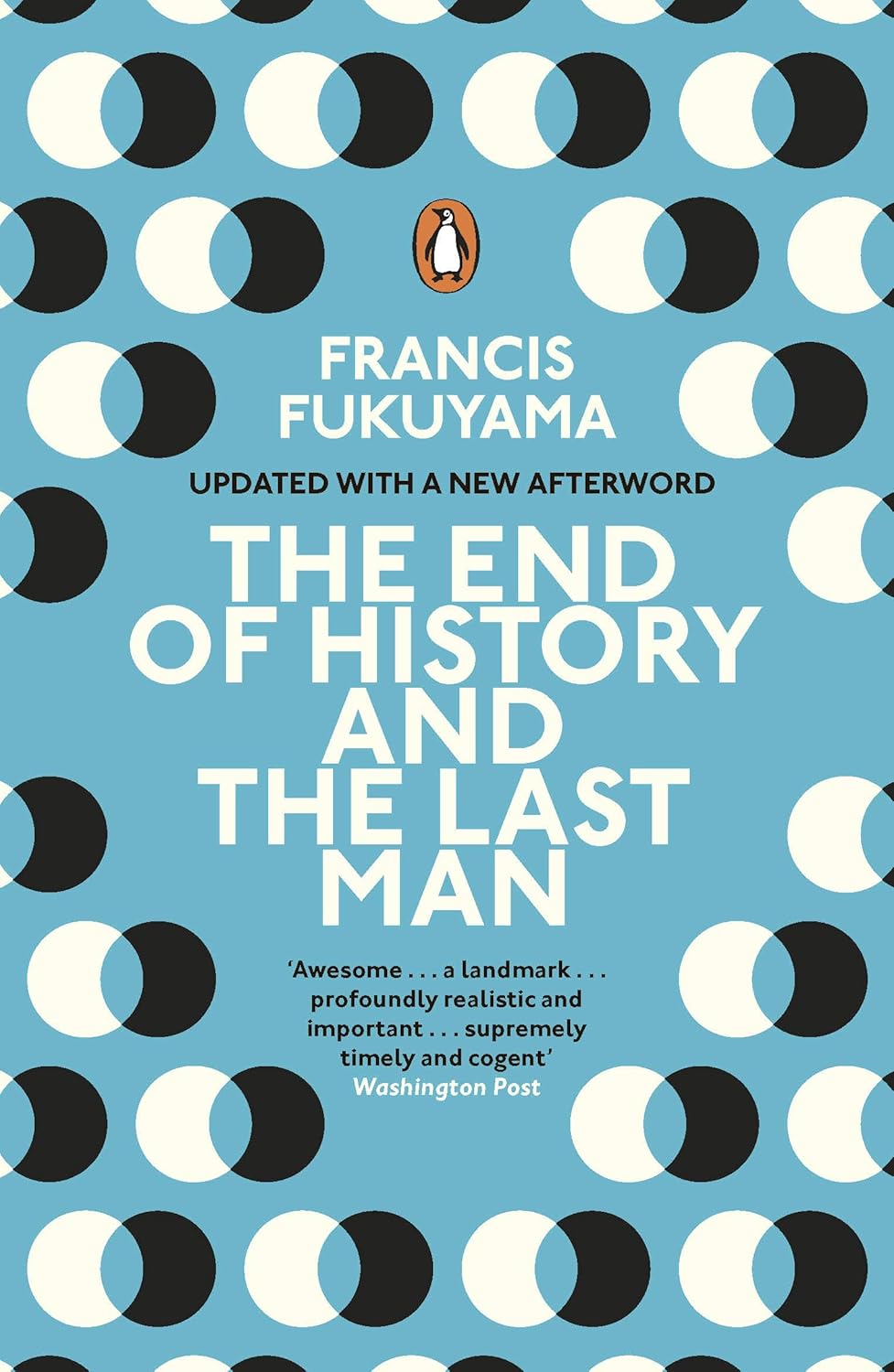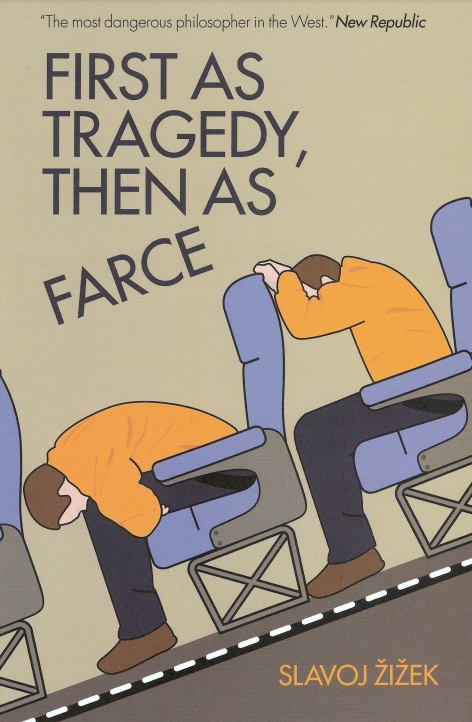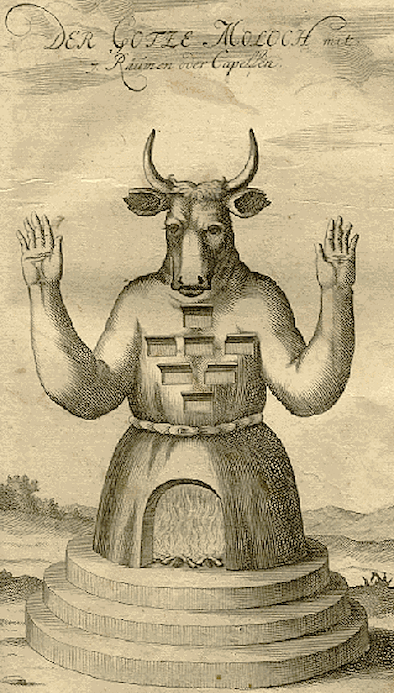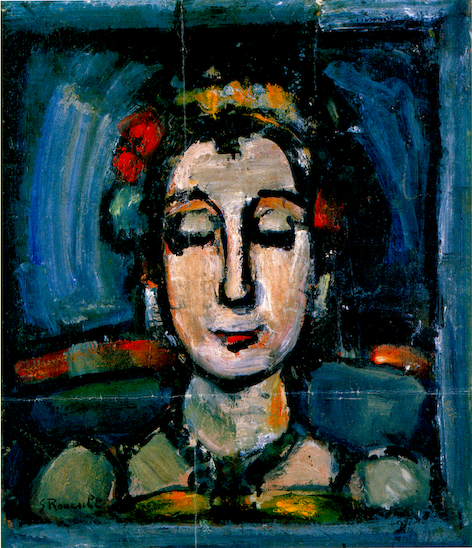

フクヤマ『歴史の終わりと最後の人間』について
On The End of History and the Last Man. by Francis Fukuama.
ルイ16世「ところであれはレヴォルトなのかね?」
に対するラ・ロッシュフーコー卿の答え「いいえ、陛下、あれはレヴォルシオンでございます」(ブルスティン 2022:18-19)[→姉妹編「21世紀の革命について」]Zizek(2009) ""
『歴史の終わりと最後の人間』(The End of History and the Last Man)は、アメリカの政治学者フランシス・フクヤマが1992年に発表した政治哲学書である。冷戦(1945-1991年)とソビエト連邦解体 (1991年)の後に起こった西欧自由民主主義の台頭によって、人類は「単に......戦後史の特定の時代の通過ではなく、そのような歴史の終わり」に 到達したと論じている: つまり、人類のイデオロギー的進化の終着点であり、西欧リベラル・デモクラシーが人類政府の最終形態として普遍化されたことである」[1]。(1989年 夏、ベルリンの壁崩壊の数カ月前に出版)の発展版である本書で、フクヤマはゲオルク・ヴィルヘルム・フリードリヒ・ヘーゲルとカール・マルクスの哲学とイ デオロギーを援用し、人類の歴史をある社会経済的エポックから別のエポックへの直線的な進行として定義している。 スロベニアの哲学者スラヴォイ・ジジェクは、歴史の終わりに到達したというフクヤマの考えは完全な真実ではないと主張する。ジジェクは、自由民主主義は資 本主義と結びついていると指摘する。しかし、中国やシンガポールのような権威主義国家における資本主義の成功は、資本主義と民主主義の結びつきが崩れてい ることを示している[20→Žižek, Slavoj (2009). First As Tragedy, Then As Farce. Verso Books. pp. 131–132. ISBN 9781844674282.]
| The
End of History and the Last Man is a 1992 book of political
philosophy by American political scientist Francis Fukuyama
which argues that with the ascendancy of Western liberal
democracy—which occurred after the Cold War (1945–1991) and the
dissolution of the Soviet Union (1991)—humanity has reached "not just
... the passing of a particular period of post-war history, but the end
of history as such: That is, the end-point of mankind's ideological
evolution and the universalization of Western liberal democracy as the
final form of human government."[1] For the book, which is an expansion
of his essay "The End of History?" (published in the summer of 1989,
months before the fall of the Berlin Wall), Fukuyama draws upon the
philosophies and ideologies of Georg Wilhelm Friedrich Hegel and Karl
Marx, who define human history as a linear progression, from one
socioeconomic epoch to another.[1][2] |
『歴史の終わりと最後の人間』(The
End of History and the Last
Man)は、アメリカの政治学者フランシス・フクヤマが1992年に発表した政治哲学書である。冷戦(1945-1991年)とソビエト連邦解体
(1991年)の後に起こった西欧自由民主主義の台頭によって、人類は「単に......戦後史の特定の時代の通過ではなく、そのような歴史の終わり」に
到達したと論じている:
つまり、人類のイデオロギー的進化の終着点であり、西欧リベラル・デモクラシーが人類政府の最終形態として普遍化されたことである」[1]。(1989年
夏、ベルリンの壁崩壊の数カ月前に出版)の発展版である本書で、フクヤマはゲオルク・ヴィルヘルム・フリードリヒ・ヘーゲルとカール・マルクスの哲学とイ
デオロギーを援用し、人類の歴史をある社会経済的エポックから別のエポックへの直線的な進行として定義している[1][2]。 |
| Overview Fukuyama argues that history should be viewed as an evolutionary process, and that the end of history, in this sense, means that liberal democracy is the final form of government for all nations. According to Fukuyama, since the French Revolution, liberal democracy has repeatedly proven to be a fundamentally better system (ethically, politically, economically) than any of the alternatives,[1] and so there can be no progression from it to an alternative system. Fukuyama claims not that events will stop occurring in the future, but rather that all that will happen in the future (even if totalitarianism returns) is that democracy will become more and more prevalent in the long term. Some argue[who?] that Fukuyama presents "American-style" democracy as the only "correct" political system and argues that all countries must inevitably follow this particular system of government.[3][4] However, many Fukuyama scholars claim this is a misreading of his work.[citation needed] Fukuyama's argument is only that in the future there will be more and more governments that use the framework of parliamentary democracy and that contain markets of some sort. He has said: |
概要 フクヤマは、歴史は進化の過程として捉え るべきであり、この意味での歴史の終わりとは、リベラル・デモクラシーがすべての国にとって最終的な政治形態であることを意味すると主張している。フクヤ マによれば、フランス革命以来、リベラル・デモクラシーはどの代替案よりも(倫理的、政治的、経済的に)根本的に優れたシステムであることが繰り返し証明 されてきた[1]。フクヤマは、将来起こる出来事がなくなるというのではなく、(たとえ全体主義が復活したとしても)将来起こることは、長期的には民主主 義がますます普及するということだけだと主張している。 フクヤマが「アメリカ型」民主主義を唯一の「正しい」政治体制として提示し、すべての国が必然的にこの特定の政治体制に従わなければならないと主張する [3][4]人もいるが、多くのフクヤマ研究者は、これは彼の著作の誤読であると主張している[要出典]。 フクヤマの主張は、将来、議会制民主主義の枠組みを使用し、何らかの市場を含む政府がますます多くなるということだけである。彼はこう言っている: |
| The End of History
was never linked to a specifically American model of social or
political organization. Following Alexandre Kojève, the Russian-French
philosopher who inspired my original argument, I believe that the
European Union more accurately reflects what the world will look like
at the end of history than the contemporary United States. The EU's
attempt to transcend sovereignty and traditional power politics by
establishing a transnational rule of law is much more in line with a
"post-historical" world than the Americans' continuing belief in God,
national sovereignty, and their military.[5] |
『歴史の終わり』は、社会的あるいは政治
的な組織について、特別にアメリカ的なモデルと結びついたわけでは決してない。私の原論にインスピレーションを与えたロシア系フランス人の哲学者、アレク
サンドル・コジェーヴに倣って、私は、現代のアメリカよりもEUの方が、歴史の終わりに世界がどのようになるかをより正確に反映していると考えている。国
境を越えた法の支配を確立することで、主権や伝統的な権力政治を超越しようとするEUの試みは、神や国家主権や軍隊を信じ続けるアメリカ人よりも、はるか
に「歴史後」の世界に合致している[5]。 |
| Arguments in favour An argument in favour of Fukuyama's thesis is the democratic peace theory, which argues that mature democracies rarely or never go to war with one another. This theory has faced criticism, with arguments largely resting on conflicting definitions of "war" and "mature democracy". Part of the difficulty in assessing the theory is that democracy as a widespread global phenomenon emerged only very recently in human history, which makes generalizing about it difficult. (See also list of wars between democracies.) Other major empirical evidence includes the elimination of interstate warfare in South America, Southeast Asia, and Eastern Europe among countries that moved from military dictatorships to liberal democracies. According to several studies, the end of the Cold War and the subsequent increase in the number of liberal democratic states were accompanied by a sudden and dramatic decline in total warfare, interstate wars, ethnic wars, revolutionary wars, and the number of refugees and displaced persons.[6][7] |
賛成論 フクヤマのテーゼを支持する論拠として、成熟した民主主義国家が互いに戦争することはめったにない、あるいは決してないという民主主義平和論がある。この 理論には批判もあり、「戦争」と「成熟した民主主義」の定義が食い違っていることが主な原因となっている。この理論を評価することの難しさのひとつは、民 主主義が世界的に広まったのは人類史上ごく最近のことであり、一般化することが難しいことである。(民主主義国家間の戦争一覧も参照のこと)。 その他の主な経験的証拠としては、南米、東南アジア、東ヨーロッパにおいて、軍事独裁政権から自由民主主義国家に移行した国々の間で国家間戦争がなくなっ たことが挙げられる。 いくつかの研究によれば、冷戦の終結とそれに続く自由民主主義国家の増加は、総力戦、国家間戦争、民族戦争、革命戦争、難民・避難民の数の急激かつ劇的な 減少を伴っていた[6][7]。 |
| Criticisms Jacques Derrida In Specters of Marx: The State of the Debt, the Work of Mourning and the New International (1993), Jacques Derrida criticized Fukuyama as a "come-lately reader" of the philosopher-statesman Alexandre Kojève (1902–1968), who "in the tradition of Leo Strauss" (1899–1973), in the 1950s, already had described the society of the U.S. as the "realization of communism"; and said that the public-intellectual celebrity of Fukuyama and the mainstream popularity of his book, The End of History and the Last Man, were symptoms of right-wing, cultural anxiety about ensuring the "Death of Marx". In criticising Fukuyama's celebration of the economic and cultural hegemony of Western liberalism, Derrida said: For it must be cried out, at a time when some have the audacity to neo-evangelize in the name of the ideal of a liberal democracy that has finally realized itself as the ideal of human history: never have violence, inequality, exclusion, famine, and thus economic oppression affected as many human beings in the history of the earth and of humanity. Instead of singing the advent of the ideal of liberal democracy and of the capitalist market in the euphoria of the end of history, instead of celebrating the 'end of ideologies' and the end of the great emancipatory discourses, let us never neglect this obvious, macroscopic fact, made up of innumerable, singular sites of suffering: no degree of progress allows one to ignore that never before, in absolute figures, have so many men, women and children been subjugated, starved or exterminated on the earth.[8] |
批判 ジャック・デリダ 『マルクスの亡霊』(1993年)において、ジャック・デリダは、フクヤマが「借金 の国家、喪の仕事、そして新しいインターナショナルの遅れ てきた読者」であると批判した: ジャック・デリダは、『マルクスの亡霊-債務状態、喪の仕事、そして新インターナショナル』(1993年)において、フクヤマを、1950年代にすでに 「レオ・シュトラウス」(1899-1973年)の伝統を受け継ぎ、アメリカの社会を「共産主義の実現」と表現していた哲学者・国家主義者アレクサンド ル・コジェーヴ(1902-1968年)の「遅れてきた読者」であると批判した。 そして、フクヤマの大衆的・知的な知名度と彼の著書『歴史の終わりと最後の人』の主流人気は、「マルクスの死」を確実にしようとする右翼的・文化的な不安 の表れであると述べた。デリダは、フクヤマが西欧自由主義の経済的・文化的覇権を謳歌していることを批判し、次のように述べている: 暴力、不平等、排除、飢餓、ひいては経済的抑圧が、地球と人類の歴史において、これほど多くの人間に影響を与えたことはない。自由民主主義と資本主義市場 の理想の到来を、歴史の終わりという陶酔の中で歌うのではなく、「イデオロギーの終わり」と偉大な解放の言説の終わりを祝うのではなく、無数の特異な苦難 の現場からなる、この明白で巨視的な事実を決して無視してはならないのだ。いかなる進歩も、絶対的な数字において、地球上でかつてこれほど多くの男性、女 性、子どもが服従させられ、飢えさせられ、絶滅させられたことはなかったという事実を無視することを許さない[8]。 |
| Therefore, Derrida
said: "This end of History is essentially a Christian eschatology. It is consonant with the current discourse of the Pope on the European Community: Destined to become [either] a Christian State or [a] Super-State; [but] this community would still belong, therefore, to some Holy Alliance"; that Fukuyama practised an intellectual "sleight-of-hand trick", by using empirical data whenever suitable to his message, and by appealing to an abstract ideal whenever the empirical data contradicted his end-of-history thesis; and that Fukuyama sees the United States and the European Union as imperfect political entities, when compared to the distinct ideals of liberal democracy and of the free market, but understands that such abstractions (ideals) are not demonstrated with empirical evidence, nor ever could be empirically demonstrated, because they are philosophical and religious abstractions that originated from the Gospels of Philosophy of Hegel; and yet, Fukuyama still uses empirical observations to prove his thesis, which he, himself, agrees are imperfect and incomplete, to validate his end-of-history thesis, which remains an abstraction.[8][failed verification] |
そこでデリダは言う: 「この歴史の終わりは、本質的にキリスト教の終末論である。それは、欧州共同体に関するローマ教皇の現在の言説と一致している: キリスト教国家か超国家となる運命にある。しかし、この共同体は、それゆえ、聖なる同盟に属することになる」、フクヤマは、自分のメッセージにふさわしい ときには経験的データを用い、その経験的データが歴史の終わりというテーゼと矛盾するときには抽象的な理想に訴えるという、知的な「手品」を実践してい た; フクヤマは、米国と欧州連合を、自由民主主義と自由市場という明確な理想と比較した場合、不完全な政治的実体であると見ているが、そのような抽象的なもの (理想)は経験的証拠によって実証されるものではなく、また実証されうるものでもないことを理解している; それでもなお、フクヤマは、彼自身も不完全で不完全であると認めている自分のテーゼを証明するために、経験的な観察を用いている。 [8][検証失敗]。 |
| Radical Islam,
tribalism, and the "Clash of Civilizations" Various Western commentators have described the thesis of The End of History as flawed because it does not sufficiently take into account the power of ethnic loyalties and religious fundamentalism as a counter-force to the spread of liberal democracy, with the specific example of Islamic fundamentalism, or radical Islam, as the most powerful of these. Benjamin Barber wrote a 1992 article and a 1995 book, Jihad vs. McWorld, that addressed this theme. Barber described "McWorld" as a secular, liberal, corporate-friendly transformation of the world and used the word "jihad" to refer to the competing forces of tribalism and religious fundamentalism, with a special emphasis on Islamic fundamentalism. Samuel P. Huntington wrote a 1993 essay, The Clash of Civilizations, in direct response to The End of History; he then expanded the essay into a 1996 book, The Clash of Civilizations and the Remaking of World Order. In the essay and book, Huntington argued that the temporary conflict between ideologies is being replaced by the ancient conflict between civilizations. The dominant civilization decides the form of human government, and these will not be constant. He especially singled out Islam, which he described as having "bloody borders". After the September 11, 2001, attacks, The End of History was cited by some commentators as a symbol of the supposed naiveté and undue optimism of the Western world during the 1990s, in thinking that the end of the Cold War also represented the end of major global conflict. In the weeks after the attacks, Fareed Zakaria called the events "the end of the end of history", while George Will wrote that history had "returned from vacation".[9] Fukuyama did discuss radical Islam briefly in The End of History. He argued that Islam is not an imperialist force like Stalinism and fascism; that is, it has little intellectual or emotional appeal outside the Islamic "heartlands". Fukuyama pointed to the economic and political difficulties that Iran and Saudi Arabia face and argued that such states are fundamentally unstable: either they will become democracies with a Muslim society (like Turkey) or they will simply disintegrate. Moreover, when Islamic states have actually been created, they were easily dominated by the powerful Western states. In October 2001, Fukuyama, in a Wall Street Journal opinion piece, responded to criticism of his thesis after the September 11 attacks and supported his views by saying, "I believe that in the end I remain right". He further explained that what he meant by "End of History" was the evolution of human political system, toward that of the "liberal-democratic West". He also noted that his original thesis "does not imply a world free from conflict, nor the disappearance of culture as a distinguishing characteristic of societies".[9] |
イスラム過激派、部族主義、そして
"文明の衝突" さまざまな欧米の論者が、『歴史の終わり』の論旨には欠陥があると評してきた。それは、リベラル・デモクラシーの広がりに対する対抗勢力としての民族的忠 誠心や宗教的原理主義の力を十分に考慮していないからであり、イスラム原理主義、すなわちイスラム過激派はその中でも最も強力なものである。 ベンジャミン・バーバーは1992年の論文と1995年の著書『ジハード対マックワールド』でこのテーマを取り上げている。バーバーは "マックワールド "を世俗的、リベラル、企業フレンドリーな世界の変容と表現し、"ジハード "という言葉を部族主義と宗教的原理主義の競合する力、特にイスラム原理主義に重点を置いたものを指す言葉として用いた。 サミュエル・P・ハンティントンは、『歴史の終わり』への直接的な反論として、1993年に『文明の衝突』というエッセイを書いた。このエッセイと著書の 中でハンティントンは、イデオロギー間の一時的な対立は、古来からの文明間の対立に取って代わられつつあると主張した。支配的な文明が人間の統治形態を決 定し、それは不変ではない。彼は特にイスラム教を取り上げ、「血塗られた国境」を持つと表現した。 2001年9月11日の同時多発テロの後、「歴史の終わり」は、冷戦の終結が世界的な紛争の終結でもあると考えた1990年代の西側世界の甘さと過度の楽 観主義の象徴として、一部の論者によって引用された。同時多発テロの数週間後、ファリード・ザカリアはこの事件を「歴史の終わりの終わり」と呼び、ジョー ジ・ウィルは歴史が「休暇から戻った」と書いた[9]。 フクヤマは『歴史の終わり』の中でイスラム過激派について少し触れている。彼は、イスラム教はスターリン主義やファシズムのような帝国主義的勢力ではない と主張した。フクヤマは、イランやサウジアラビアが直面している経済的・政治的困難を指摘し、そのような国家は根本的に不安定であり、(トルコのように) イスラム社会を持つ民主主義国家になるか、単に崩壊するかのどちらかであると主張した。さらに、イスラム国家が実際に誕生しても、強大な西側諸国に簡単に 支配されてしまう。 2001年10月、フクヤマはウォール・ストリート・ジャーナル紙のオピニオン・ピースで、9月11日の同時多発テロ事件後の自身の論文に対する批判に応 え、「結局のところ、私は正しいままだと信じている」と述べ、自身の見解を支持した。さらに、「歴史の終わり」が意味するのは、「自由民主主義的な西側」 に向かう人類の政治システムの進化であると説明した。彼はまた、自分のオリジナルのテーゼは「紛争のない世界を意味するものではなく、社会の特徴としての 文化の消滅を意味するものでもない」とも述べている[9]。 |
| The resurgence of
Russia and China Another challenge to the "end of history" thesis is the growth in the economic and political power of two countries, Russia and China. China has a one-party state government, while Russia, though formally a democracy, is often described as an autocracy; it is categorized as an anocracy in the Polity data series.[10] Azar Gat, Professor of National Security at Tel Aviv University, argued this point in his 2007 Foreign Affairs article, "The Return of Authoritarian Great Powers", stating that the success of these two countries could "end the end of history".[11] Gat also discussed radical Islam, but stated that the movements associated with it "represent no viable alternative to modernity and pose no significant military threat to the developed world". He considered the challenge of China and Russia to be the major threat, since they could pose a viable rival model which could inspire other states. This view was echoed by Robert Kagan in his 2008 book, The Return of History and the End of Dreams, whose title was a deliberate rejoinder to The End of History.[12] In his 2008 Washington Post opinion piece, Fukuyama also addressed this point. He wrote, "Despite recent authoritarian advances, liberal democracy remains the strongest, most broadly appealing idea out there. Most autocrats, including Putin and Chávez, still feel that they have to conform to the outward rituals of democracy even as they gut its substance. Even China's Hu Jintao felt compelled to talk about democracy in the run-up to Beijing's Olympic Games."[13] His "ultimate nightmare", he said in March 2022, is a world in which China supports Russia's invasion of Ukraine and Russia supports a Chinese invasion of Taiwan. If that were to happen, and be successful, Fukuyama said, "then you would really be living in a world that was being dominated by these non-democratic powers. If the United States and the rest of the West couldn't stop that from happening, then that really is the end of the end of history."[14] |
ロシアと中国の復活 歴史の終わり」というテーゼに対するもうひとつの挑戦は、ロシアと中国という2つの国の経済的・政治的パワーの増大である。中国は一党独裁の国家政府であ り、ロシアは形式的には民主主義国家であるが、しばしば独裁政治と評される。 テルアビブ大学のアザール・ガット教授(国家安全保障論)は、2007年のフォーリン・アフェアーズの記事「権威主義的大国の再来」でこの点を主張し、こ の2国の成功は「歴史の終わりを終わらせる」可能性があると述べている[11]。ガットはイスラム過激派についても論じているが、それに関連する運動は 「近代性に対する実行可能な代替案を示すものではなく、先進国にとって重大な軍事的脅威をもたらすものではない」と述べている。ガットは、中国とロシアの 挑戦こそが大きな脅威であると考えた。なぜなら、中国とロシアは、他の国家を鼓舞するような、実行可能な対抗モデルとなりうるからである。 この見解は、ロバート・ケーガンが2008年に出版した著書『The Return of History and the End of Dreams(歴史の回帰と夢の終焉)』でも繰り返されており、そのタイトルは『The End of History(歴史の終焉)』に対する意図的な反論であった[12]。 2008年のワシントン・ポスト紙のオピニオン記事でも、フクヤマはこの点を取り上げている。最近の権威主義の進歩にもかかわらず、リベラル・デモクラ シーは依然として最も強く、最も広範にアピールする考え方である。プーチンやチャベスを含むほとんどの独裁者は、民主主義の本質を抉り出しながらも、外面 的な儀式に従わなければならないと感じている。中国の胡錦濤でさえ、北京オリンピックに向けて民主主義について語らざるを得ないと感じている」[13]。 彼が2022年3月に語った「究極の悪夢」とは、中国がロシアのウクライナ侵攻を支持し、ロシアが中国の台湾侵攻を支持する世界である。もしそのようなこ とが起こり、成功すれば、「本当に非民主的な大国に支配された世界に住むことになる」とフクヤマは言う。もしアメリカや他の西側諸国がそれを阻止できな かったら、それこそ本当に歴史の終わりなのだ」[14]。 |
| Failure of civil
society and political decay In 2014, on the occasion of the 25th anniversary of the publication of the original essay, "The End of History?", Fukuyama wrote a column in The Wall Street Journal again updating his hypothesis. He wrote that, while liberal democracy still had no real competition from more authoritarian systems of government "in the realm of ideas", nevertheless he was less idealistic than he had been "during the heady days of 1989". Fukuyama noted the Orange Revolution in Ukraine and the Arab Spring, both of which seemed to have failed in their pro-democracy goals, as well as the "backsliding" of democracy in countries including Thailand, Turkey and Nicaragua. He stated that the biggest problem for the democratically elected governments in some countries was not ideological but "their failure to provide the substance of what people want from government: personal security, shared economic growth and the basic public services ... that are needed to achieve individual opportunity." Though he believed that economic growth, improved government and civic institutions all reinforced one another, he wrote that it was not inevitable that "all countries will ... get on that escalator".[15] Twenty-five years later, the most serious threat to the end-of-history hypothesis isn't that there is a higher, better model out there that will someday supersede liberal democracy; neither Islamist theocracy nor Chinese capitalism cuts it. Once societies get on the up escalator of industrialization, their social structure begins to change in ways that increase demands for political participation. If political elites accommodate these demands, we arrive at some version of democracy. Fukuyama also warned of "political decay", which he wrote could also affect established democracies like the United States, in which corruption and crony capitalism erode liberty and economic opportunity. Nevertheless, he expressed his continued belief that "the power of the democratic ideal remains immense".[15] Following the United Kingdom's decision to leave the European Union and the election of Donald Trump as President of the United States in 2016, Fukuyama feared for the future of liberal democracy in the face of resurgent populism,[16][17][18] and the rise of a "post-fact world",[19] saying that "twenty five years ago, I didn't have a sense or a theory about how democracies can go backward. And I think they clearly can." He warned that America's political rot was infecting the world order to the point where it "could be as big as the Soviet collapse". Fukuyama also highlighted Russia's interference in the Brexit referendum and 2016 U.S. elections.[18] |
市民社会の失敗と政治の衰退 2014年、原著『歴史の終わりか』の出版25周年を記念して、フクヤマはウォール・ストリート・ジャーナル紙のコラムで再び自身の仮説を更新した。リベ ラル・デモクラシーは、「思想の領域では」、より権威主義的な政治体制との真の競争はまだないものの、それにもかかわらず、彼は「1989年の熱狂的な時 代」よりも理想主義的でなくなっていると書いた。フクヤマは、ウクライナのオレンジ革命とアラブの春に言及し、両者とも民主化という目標に失敗したように 見えたこと、またタイ、トルコ、ニカラグアを含む国々における民主主義の「後退」に言及した。民主的に選出されたいくつかの国の政府にとって最大の問題 は、イデオロギー的なものではなく、「人々が政府に求めているもの、すなわち個人の安全、経済成長の共有、個人の機会を達成するために必要な基本的な公共 サービス......を提供できなかったこと」だと述べた。彼は、経済成長、改善された政府、市民制度はすべて互いに補強し合うものだと考えていたが、 「すべての国が......そのエスカレーターに乗る」ことは必然ではないと書いている[15]。 それから25年後、「歴史の終わり」という仮説に対する最も深刻な脅威は、いつの日か自由民主主義に取って代わる、より高次で優れたモデルが存在するとい うことではない。社会が工業化のエスカレーターに乗れば、社会構造は政治参加への要求を高めるように変化し始める。政治的エリートがこのような要求を受け 入れれば、民主主義のあるバージョンに到達する。 フクヤマはまた、「政治的腐敗」についても警告を発している。腐敗と縁故資本主義が自由と経済的機会を蝕むアメリカのような既成の民主主義国家にも影響を 及ぼす可能性があると彼は書いている。とはいえ、彼は「民主主義の理想が持つ力は依然として計り知れない」という信念を表明している[15]。 イギリスのEU離脱決定と2016年のドナルド・トランプのアメリカ大統領当選を受けて、フクヤマはポピュリズムの復活[16][17][18]と「ポス ト事実世界」の台頭[19]に直面する自由民主主義の未来を危惧し、「25年前、私には民主主義がどのように後退しうるかについての感覚も理論もなかっ た。そして私は、民主主義は明らかに後退しうると考えている」と述べた。彼は、アメリカの政治的腐敗が世界秩序に伝染し、「ソビエト崩壊と同じくらいの規 模になるかもしれない」と警告した。フクヤマはまた、ブレグジットの国民投票と2016年のアメリカ選挙におけるロシアの干渉を強調した[18]。 |
| Posthuman future Fukuyama has also stated that his thesis was incomplete, but for a different reason: "there can be no end of history without an end of modern natural science and technology" (quoted from Our Posthuman Future). Fukuyama predicts that humanity's control of its own evolution will have a great and possibly terrible effect on liberal democracy. Split between democracy and capitalism Slovenian philosopher Slavoj Žižek argues that Fukuyama's idea that we have reached the end of history is not wholly true. Žižek points out that liberal democracy is linked to capitalism; however, the success of capitalism in authoritarian nations like China and Singapore shows that the link between capitalism and democracy is broken.[ 20: Žižek, Slavoj (2009). First As Tragedy, Then As Farce. Verso Books. pp. 131–132. ISBN 9781844674282.] Problems caused by the success of capitalism and neo-liberal policies, such as greater wealth inequality and environmental hazards, manifested in many countries with unrest towards elected governments. As a result liberal democracy has struggled to survive many of the problems caused by a free market economy and many nations would see a decline in the quality of their democracy.[21:Reich, Robert B. "How Capitalism Is Killing Democracy". Foreign Policy. Retrieved January 14, 2022.] |
ポストヒューマンの未来 フクヤマはまた、自身の論文は不完全なものであったと述べているが、その理由は異なる。「近代自然科学とテクノロジーの終焉なくして歴史の終焉はありえな い」(『Our Posthuman Future』より引用)。フクヤマは、人類が自らの進化をコントロールすることは、リベラル・デモクラシーに大きな、そして恐るべき影響を及ぼすだろう と予測している。 民主主義と資本主義の分裂 スロベニアの哲学者スラヴォイ・ジジェクは、歴史の終わりに到達したというフクヤマの考えは完全な真実ではないと主張する。ジジェクは、自由民主主義は資 本主義と結びついていると指摘する。しかし、中国やシンガポールのような権威主義国家における資本主義の成功は、資本主義と民主主義の結びつきが崩れてい ることを示している[20]。資本主義と新自由主義政策の成功によって引き起こされた問題、たとえば富の不平等の拡大や環境破壊は、多くの国々で選挙で選 ばれた政府に対する不安となって現れた。その結果、自由民主主義は自由市場経済によって引き起こされる多くの問題を乗り切るのに苦労し、多くの国が民主主 義の質の低下を見ることになった[21]。 |
| https://en.wikipedia.org/wiki/Francis_Fukuyama |
|
| https://en.wikipedia.org/wiki/The_End_of_History_and_the_Last_Man |
|
| Žižek, Slavoj (2009). First As Tragedy, Then As Farce. Verso Books. pp. 131–132. ISBN 9781844674282. | |
| "First
as tragedy, then as farce" is a famous quote by Karl Marx from The
Eighteenth Brumaire of Louis Bonaparte, meaning history's significant
events and figures repeat, but the second time they appear as a
distorted, comical, or trivial imitation of the original, like Napoleon
III mimicking his uncle, Napoleon I, or the aftermath of the 1848
French Revolution mocking the 1789 one. It suggests we fail to learn
from serious historical moments (tragedy) and instead repeat them in a
less impactful, even absurd, manner (farce). |
「最初は悲劇として、次に茶番として」とは、カール・マルクスが『ルイ・ボナパルトのブリュメール18日』
で述べた有名な言葉だ。これは歴史の重要な出来事や人物が繰り返されるが、二度目に現れる時は歪んだ、滑稽な、あるいは取るに足らない模倣として現れると
いう意味である。例えばナポレオン三世が叔父のナポレオン一世を真似るように、あるいは1848年フランス革命の余波が1789年の革命を嘲笑うように。
これは、我々が深刻な歴史的瞬間(悲劇)から学ぶことができず、代わりに影響力の弱い、あるいは滑稽な形で(茶番劇)それを繰り返すことを示唆している。 |
| Split between democracy and capitalism Slovenian philosopher Slavoj Žižek argues that Fukuyama's idea that we have reached the end of history is not wholly true. Žižek points out that liberal democracy is linked to capitalism; however, the success of capitalism in authoritarian nations like China and Singapore shows that the link between capitalism and democracy is broken.[23] Problems caused by the success of capitalism and neo-liberal policies, such as greater wealth inequality and environmental hazards, manifested in multiple countries with unrest towards elected governments. As a result liberal democracy has struggled to survive a number of the problems caused by a free market economy and multiple nations would see a decline in the quality of their democracy.[24] |
民主主義と資本主義の分裂 スロベニアの哲学者スラヴォイ・ジジェクは、フクヤマの「歴史の終わり」という主張は完全には真実ではないと論じる。ジジェクは、自由民主主義は資本主義 と結びついていると指摘する。しかし、中国やシンガポールのような権威主義国家における資本主義の成功は、資本主義と民主主義の結びつきが断たれているこ とを示している。[23] 資本主義と新自由主義政策の成功がもたらした問題、例えば富の格差拡大や環境リスクは、複数の国で選出政府への不満として顕在化した。結果として自由民主 主義は、自由市場経済が引き起こす数々の問題に苦しみ、多くの国で民主主義の質が低下する事態を招いたのである。[24] [23] Žižek, Slavoj (2009). First As Tragedy, Then As Farce. Verso Books. pp. 131–132. [24]Reich, Robert B. "How Capitalism Is Killing Democracy". Foreign Policy. Retrieved January 14, 2022. |
| https://en.wikipedia.org/wiki/The_End_of_History_and_the_Last_Man |
|
★リベルテールと感覚的享受
リンク
文献
その他の情報




++
Copyleft, CC, Mitzub'ixi Quq Chi'j, 1996-2099
☆
 ☆
☆